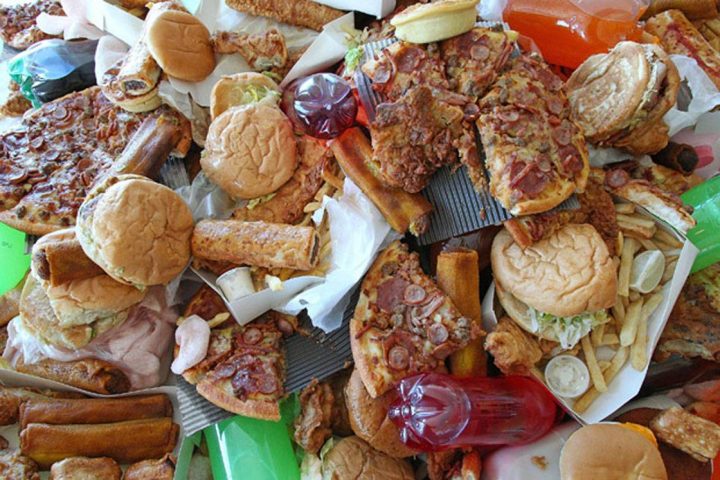For some women, the cure for a stressful day may come on an overflowing plate, but a new study is warning that eating a single, gluttonous meal after a stressful day could be slowing down your metabolism.

The research on emotional eating is wide and varied. Now, U.S. scientists say that stress eating tampers with your metabolism and, if you’re doing it often enough, it could add up to an 11-pound weight gain.
“This means that, over time, stressors could lead to weight gain,” lead researcher Dr. Janice Kiecolt-Glaser said.
“We know from other data that we’re more likely to eat the wrong foods when we’re stressed and our data says that when we eat the wrong foods, weight gain becomes more likely because we are burning fewer calories,” Kiecolt-Glaser said.
READ MORE: Which is to blame for obesity – unhealthy eating or lack of exercise?
For the research, Kiecolt-Glaser and her Ohio State University team recruited 58 women — average age 53. Their task? Eat food for two days and fill out questionnaires.
On the first day, to regulate food intake the researchers fed the women three standardized meals. They then fasted for 12 hours.
Then came the fun part: the next day they were fed eggs, turkey sausage, biscuits and gravy — 930 calories and 60 grams of fat. This was the equivalent of a two-patty hamburger and French fries from a fast-food chain.
READ MORE: How do lab eats eat Oreos? U.S. study suggests the cookies are as addictive as cocaine
“This is not an extraordinary meal compared to what many of us would grab when we’re in a hurry and out getting some food,” Kiecolt-Glaser said.
The scientists then measured their metabolic rate — how long it took for them to burn calories and fat — along with their blood sugar, triglycerides, insulin and cortisol, a stress hormone.
It was the women who reported at least one stressful event the day before that hung onto the calories more — they lost 104 fewer calories than their stress-free counterparts. The researchers say that disparity could result in a weight gain of 11 pounds in a single year if stress eating became a habit.
READ MORE: Self-control is within our reach, even when we’re tired, scientists say
The frazzled women had higher levels of insulin, which aids in storing fat. They also had less fat oxidation, which is when large fat molecules are converted into smaller cells that can be used as fuel. If it isn’t burned, it’s stored.
If women had a history of depression, that made things worse — this group of women had a steep rise in triglycerides, a form of fat in the blood.
“The double whammy of past depression as well as daily stressors was a really bad combination,” Kiecolt-Glaser said.
The research isn’t novel — feeling burnt out or exhausted at work, lack of sleep, or hanging onto bad emotions have also been tied to weight gain.
READ MORE: Is food addiction real? Harvard study has experts weighing in
The researchers suggest that consumers should stick to healthy eating habits whenever hardships in life strike.
“We know we can’t always avoid stressors in our life, but one thing we can do to prepare for that is to have healthy food choices in our refrigerators and cabinets so that when those stressors come up, we can reach for something healthy rather than going to a very convenient but high-fat choice,” the researchers said in a university statement.
carmen.chai@globalnews.ca
Follow @Carmen_Chai


Comments